Nine incredible women to thank for LGBT equality
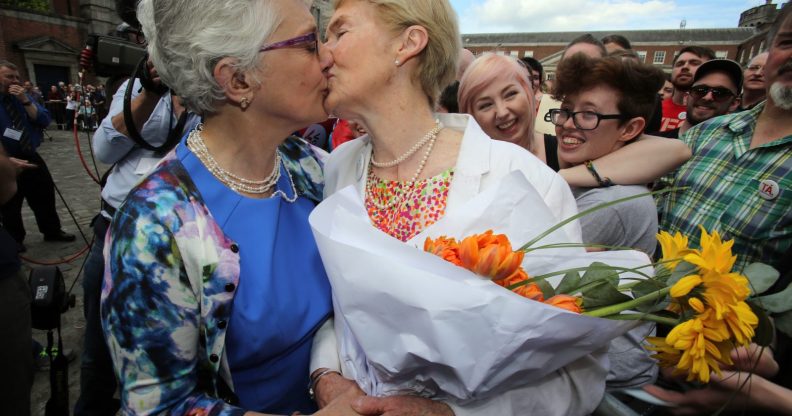
Irish Senator Katherine Zappone (L) kisses her partner Ann Louise Gilligan as supporters for same-sex marriage wait for the result of the referendum at Dublin Castle on May 23, 2015 in Dublin. (Photo by PAUL FAITH/AFP/Getty Images)
On International Women’s Day, we count down nine women who you can thank for LGBT equality.
To paraphrase a great woman: gay rights are women’s rights, and women’s rights are gay rights.
We believe the status of the LGBT and feminist movements are closely intertwined – and history tells us there’s no more powerful an advocate for our cause than a dedicated woman.
Below we take a look at nine women who led the way on LGBT rights.
Harriet Harman
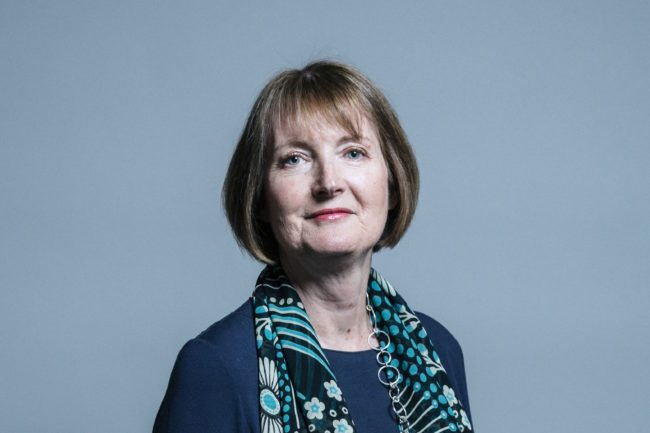
First elected to the UK’s Parliament in 1982, the long-time Labour MP has become so synonymous with the women’s rights movement that the mere mention of her name can set a Daily Mail columnist off on a fifteen-minute rant.
An influential figure in the New Labour government, the MP for Camberwell and Peckham had a say in many of the reforms that helped LGBT people.
Her most lasting legacy is the 2010 Equality Act, the law passed in the final days of the Labour government that once-and-for-all outlawed discrimination across all of public life based on sexual orientation or gender reassignment, as well as a string of other protected characteristics.
In her book A Woman’s Work, Harman opens up about how the bill started out as much weaker legislation – and her drive to ensure it was truly radical.
She writes: “A priority for me was to get a new Equality Act passed. While it was obviously a good idea to bring together all the law on discrimination into one Act, I wanted to take the opportunity to do much more than consolidate and simplify.
“I wanted to use a new bill to make a quantum leap forward on equality, to strengthen and extend legal backing for and the promotion of equality on gender and race but also on disability, age and sexual orientation.”
Ms Harman opened up about a meeting with LGBT activists from Stonewall as well as other minority groups.
The politician said: “I asked them what they wanted in the Equality Bill, hoping for a long and radical list. But I was disappointed: they had no specific demands.
“They all seemed to have accepted that the bill would be just a consolidation exercise.
“They’d been working consensually with our government for so many years that their ‘subversive outsider’ identities had been dissipated, their demands muted.
“If I was going to make progress in the teeth of resistance from other government departments, I needed them to be outsiders, challenging the government and making radical demands of us.
“I pressed them – if they could have anything in the bill, what would it be? Modest demands were not what I was looking for here – and I urged them to spell out their unreasonable demands.
“Every demand I’ve ever made has been denounced as unreasonable – but so many of them have been implemented and become generally accepted.
“When it comes to equality, today’s heresy is tomorrow’s Orthodoxy.”
Katherine Zappone
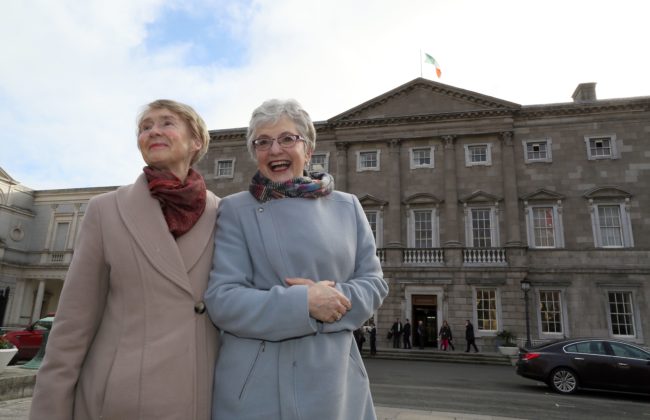
Katherine Zappone (R) and her wife Ann Louise Gilligan (Photo by PAUL FAITH/AFP/Getty Images)
When the largely-Catholic Republic of Ireland overwhelmingly voted for same-sex marriage in 2015, you’d be forgiven for thinking it came out of nowhere.
But the vote was a culmination of more than a decade’s work for then-Senator Katherine Zappone, who had been fighting for years for Ireland to recognise her marriage to wife Ann Louise Gilligan.
Zappone had filed a legal challenge in 2004 seeking recognition of their legal Canadian marriage, and never stopped advocating for what is right.
The case bounced between courts in Ireland for eight years, making it all the way to the Supreme Court in 2012 – the same year the country’s government agreed to consider the issue. Just three years later, a referendum was held to alter the constitution and allow gay couples to marry.
Senator Zappone was front-and-centre campaigning for a Yes vote, delivering a moving speech on the floor of the Senate.
She said: “This is a Bill about my life.
“Those of us who are married, possibly the majority, signed a civil law document with our spouse in the presence of specially chosen witnesses to declare and to register our legal married status.
“Once signed, we bound ourselves in law, as well as in love, to cherish and support each other, regardless of poverty or riches, of sickness or health, of failure or achievement, and to love with fidelity and trust until death.
“As a married woman, however, I am also in the minority of one in this Chamber. My marriage is denied recognition in Irish law because I am married to another woman.
“Those who, like me, belong to a minority social group because of our sexual identity are banned from accessing the institution of civil marriage purely because of who we are and our difference in sexual identity from the hetrosexual majority.
“Lesbian women and gay men cannot marry the person they choose to love. Heterosexual women and men can marry, divorce and remarry the person they choose to love, even though the intense involuntary emotional attraction and desire of forever love are no different for opposite or same-sex couples.
“That is why I say this Bill is about my life and the lives of others who share a minority status with me. We only want what the majority already has – the freedom, the right and the choice to marry the person we love.
“The fact that our freedom, our right and our choice are denied and the civil institution of marriage is banned for us means that there is no equality between heterosexual and lesbian and gay people.”
Her wife Ann tragically died in June 2017 – but not before the couple helped finally secure equality in the eyes of the law, for themselves and every other gay couple in Ireland.
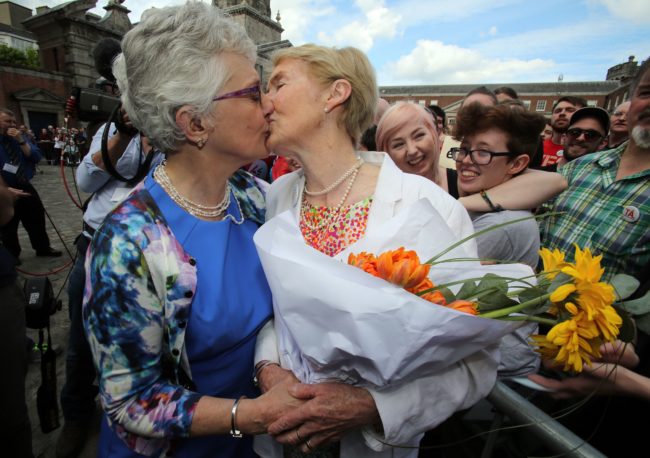
Irish Senator Katherine Zappone (L) kisses her partner Ann Louise Gilligan as supporters for same-sex marriage wait for the result of the referendum at Dublin Castle on May 23, 2015 in Dublin. (Photo by PAUL FAITH/AFP/Getty Images)
As a Senator, Zappone also helped campaign for transgender equality recognition in Ireland, helping to draft a framework which would eventually pave the way for the country’s Gender Recognition Act.
She now sits as a TD (MP) and is Minister for Children and Youth Affairs.
Lynne Featherstone
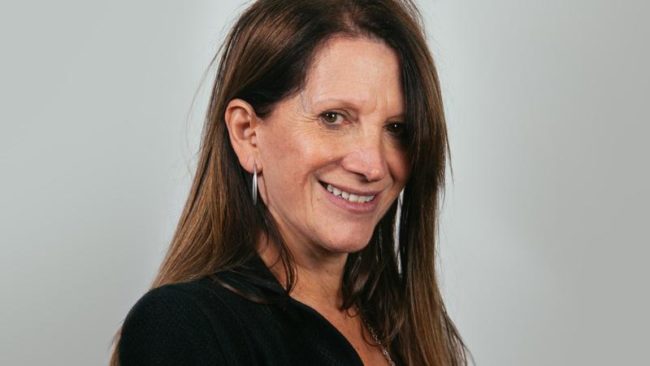
Featherstone, the former Liberal Democrat MP for Hornsey and Wood Green, found herself in an unexpected position in 2010 when her party entered government as part of a Coalition with the right-wing Conservative Party.
A comprehensive Coalition agreement was drawn up by the “pale male negotiating boys” – as Featherstone refers to them – with progress on LGBT issues largely absent from the document.
Featherstone was handed a junior role within the Home Office, where other ministers might have had little impact on policy – but instead she decided to forge her own agenda.
Acting outside of the Coalition Agreement, Featherstone proposed a new law to open marriage to same-sex couples.
The MP easily convinced her party leader, Nick Clegg, to back reform, but crucially also won round Conservative Home Secretary Theresa May and Prime Minister David Cameron – against the tide of opinion from Tory MPs.
Featherstone was heavily targeted by anti-LGBT activists during the process – “I had death and rape threats and all sorts of other threats”, she explains – but never once wavered in her pursuit of equality.
It’s thanks to Featherstone’s perseverance that anything happened on the issue at all during the Coalition years – and without her tactical manoeuvring, it’s possible gay people in England and Wales would still be waiting for marriage equality.
She now sits in the House of Lords as Baroness Featherstone – or Lord Featherstone, if you will.
The female peer made an unprecedented request when she was ennobled, querying whether she could adopt the traditionally-male ‘Lord’ as a gender-neutral signifier.
She told PinkNews: “This the House of Lords – its not the House of Baronesses – that is the point I was making. My children call me Lord Lynne – and yes, they do have to bow or curtsey.”
Marsha P. Johnson
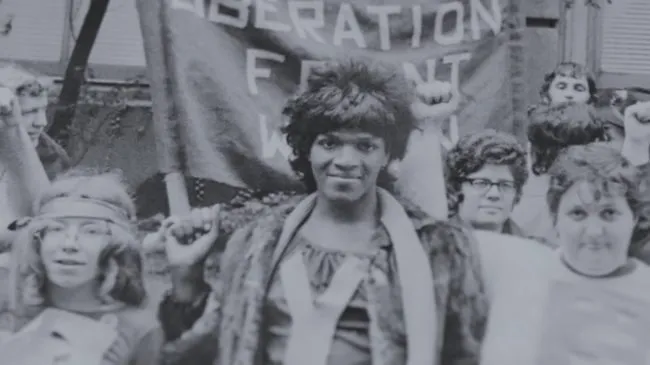
All the other women in this list achieved change by working through the system, which takes a hell of a lot of courage and determination.
But it also takes privilege – the kind that Marsha P. Johnson did not have.
As a poor transgender African-American woman in 1960s New York, the doors of the halls of power were firmly closed to the activist.
But it’s her crucial role in the 1969 Stonewall Riots that arguably had the most lasting impact on equality of all.
The uprising that Johnson led in response to homophobia and police brutality is considered by many the birth of the modern gay rights movement.
Out of the smoke and broken glass of the Stonewall riots was born the Gay Liberation Front and the early trans advocacy group S.T.A.R, both of which Johnson co-founded. She would later also play a role in AIDS activist group ACT UP.
Although Johnson fought for queer acceptance, throughout her lifetime she remained an outcast – living on the streets and surviving through sex work, battling mental illness and suffering daily indignities.
In 1973 she was even banned from marching in the New York Pride parade, by organisers seeking to project a clean and respectable image.
Johnson died in 1992 under extremely suspicious circumstances – but police initially ruled the death a suicide. After a long campaign for justice, the New York police department finally reopened the case as a potential homicide in 2012.
In many parts of the world, LGBT Pride marches are still known as Christopher Street Day parades, in honour of the location of the Stonewall riots.
Nancy Pelosi
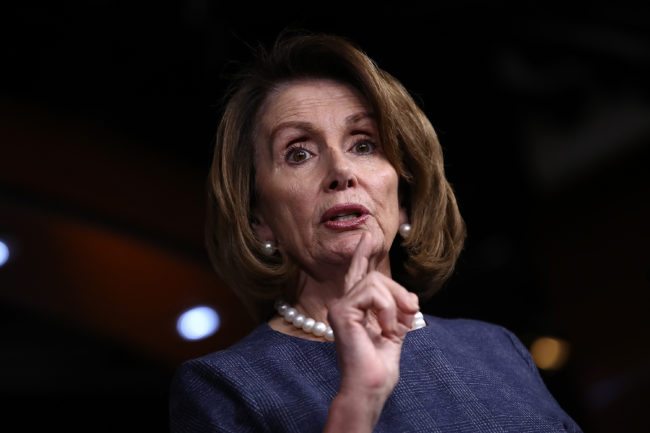
(Photo by Win McNamee/Getty Images)
A devout Catholic, Nancy Pelosi has been a Member of the U.S. House of Representatives for more than 30 years, leading the Democrats in the chamber both in opposition and majority since 2003.
During her short time as Speaker under President Obama, Pelosi steered through what remains some of the only explicit LGBT rights legislation to ever become federal law: the Matthew Shepard and James Byrd Jr. Hate Crimes Prevention Act of 2009 and the Don’t Ask, Don’t Tell Repeal Act of 2010.
The former law expanded the 1969 United States federal hate crime law to include crimes motivated by a victim’s sexual orientation or gender identity, while the latter ended the ban on gay people serving in the armed forces.
The leader also marshalled Democratic support to bills that extend federal anti-discrimination laws to cover LGBT people – the Employment Non-Discrimination Act and its successor the Equality Act – which to this day continue to be blocked by Republicans.
Pelosi backed equal marriage in 2008 – years before President Obama – while battling an attempt to impose a ban on gay unions marriage in California.
She said: “What this does is diminish the opportunity for families to be formed who love each other and find comfort in their future. It is mean-spirited, in my view, it is discriminatory, it is unfair, and it must be defeated.
“I support gay marriage. I’ve been married 45 years – five children, seven grandchildren, an eighth on the way, and I think people who value family should be able to do that.”
Pelosi explained how her Catholic faith led her to support equal marriage, saying: “My religion compels me to be against discrimination of any kind in our country, and I consider [the ban on gay marriage] a form of discrimination. I think it’s unconstitutional on top of that.”
Across her years in Congress, the seasoned politician has maintained a 100% rating from the Human Rights Campaign for her voting record on LGBT rights – indicating her unwavering support for equality.
The lawmaker cemented her gay icon status this year with an appearance on RuPaul’s Drag Race – while she has also picked up a string of lifetime achievement awards from LGBT rights groups.
Bernard Cherkasov, CEO of Equality Illinois, said: “From her first speech in the House of Representatives in 1987, when she pressed Congress to take a leading role in fighting AIDS, to the present day and her leadership on the Equality Act, Leader Pelosi has always sought to address the challenges faced by LGBT Americans.”
Maria Miller
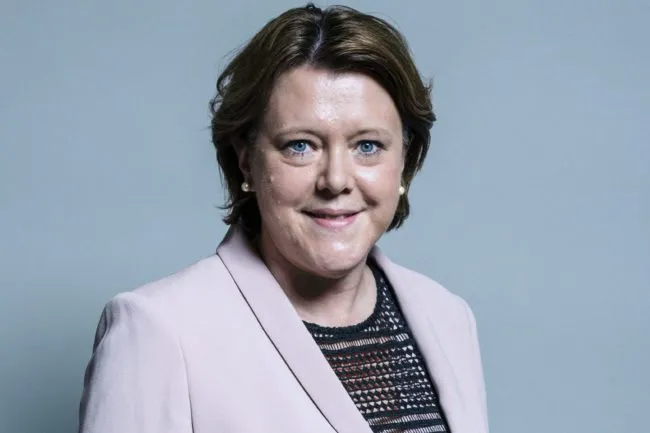
The Tory MP for Basingstoke did not seem a natural supporter of LGBT rights, when she was appointed Minister for Women and Equalities by David Cameron in 2012.
Representing a Conservative safe seat in Hampshire, as a backbench MP she had been absent on most votes on LGBT rights.
But when she was handed the equalities brief, she took it seriously. It was Miller who steered the Marriage (Same Sex Couples) Act through Parliament, sponsoring the legislation and fending off wrecking amendments from her own party’s backbenchers.
She was also key to securing the right for religious groups to perform same-sex weddings, if they choose to do so, where previous proposals only included civil marriage ceremonies.
Even after her exit from government, Mrs Miller has remained a strong ally of LGBT people in the House of Commons, forming Parliament’s first ever Women and Equalities Committee in 2015.
As Chair of the Committee, Mrs Miller held a pioneering inquiry on transgender rights, which recommended a number of changes to gender recognition laws to help transgender people, and led a campaign for inclusive sex and relationship education in all schools.
Both issues would later be taken up by equalities minister Justine Greening, who committed the government to changes.
Miller said: “It was a daunting task to have to take through the Equal Marriage Act, and I think it’s seen now to have been a turning point in attitudes towards LGBT people. To be able to chair the Equalities Committee is also an enormous honour.”
She added: “We need to make sure that trans people, who still suffer prejudice and discrimination and hate crime, get a great deal more support and help from every aspect of government.”
Hillary Clinton
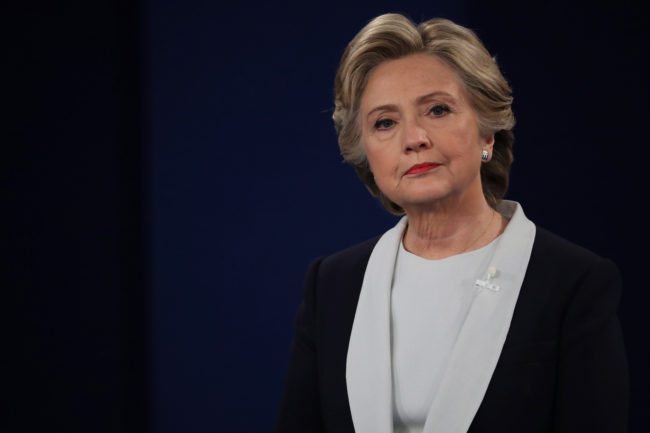
(Photo by Chip Somodevilla/Getty Images)
Hillary Clinton will be remembered in history for many things, and her role as the US Secretary of State from 2008 until 2012 in the Obama years is sadly probably not as high on that list as it should be.
It seems surreal now, but prior to Secretary Clinton taking on the role, there was no real drive to safeguard the rights of LGBT people internationally.
It was her watershed speech at the UN in 2011 that put the issue firmly on the map as part of US global foreign policy on human rights, helping to define a new status quo at the State Department that has persevered even under the Trump administration.
Setting out the mission statement on equality, she said: “Some have suggested that gay rights and human rights are separate and distinct, but, in fact, they are one and the same.
“Now, of course, 60 years ago, the governments that drafted and passed the Universal Declaration of Human Rights were not thinking about how it applied to the LGBT community. They also weren’t thinking about how it applied to indigenous people or children or people with disabilities or other marginalized groups.
“Yet in the past 60 years, we have come to recognize that members of these groups are entitled to the full measure of dignity and rights, because, like all people, they share a common humanity.
“This recognition did not occur all at once. It evolved over time. And as it did, we understood that we were honoring rights that people always had, rather than creating new or special rights for them.
“Like being a woman, like being a racial, religious, tribal, or ethnic minority, being LGBT does not make you less human. And that is why gay rights are human rights, and human rights are gay rights.”
Clinton has maintained her support for equality in recent years – and in 2016 she set out the most radical LGBT policy platform of any Presidential candidate in history.
While she didn’t get a chance to enact it herself on that occasion, it’s a pretty great starting point for Presidential contenders of the future.
Penny Wong
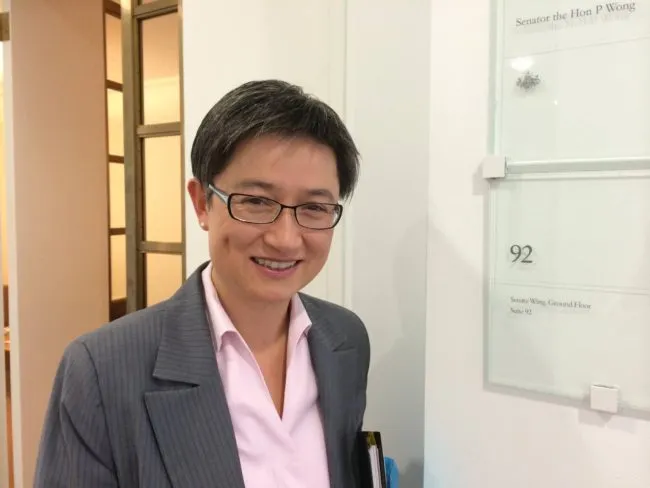
Australian Labor Senator Penny Wong made history when she came out as gay in 2010 while serving in government.
Ms Wong, who has two children with her partner Sophie Allouache, has been a leading role model for LGBT people in Australia.
After Labor went into opposition, Ms Wong became a leading voice for equal marriage in the country, leading several attempts to secure equality.
During Australia’s country-wide plebiscite on equal marriage, Wong was a persistent voice for the Yes campaign.
She said: “For too long, some Australians have been deprived of the fair go. We’ve been deprived of equality before the law for no reason other than who we are and who we love.
“For LGBTIQ Australians, the message conveyed by the discrimination in our nation’s marriage laws has been clear. It is a message that we are lesser. It is a message that we are less valued as citizens. It is a message that our relationships and our children matter less. And it is a message that, because of who we love, our love is worth less.
“This is the most personal of debates, because it is about the people who matter most to us. It is about the people we love. So I say to Sophie: thank you for you love and commitment and for all you do. And I say to our beautiful daughters, Alexandra and Hannah: I work for and fight for the world I want for you.”
Edie Windsor
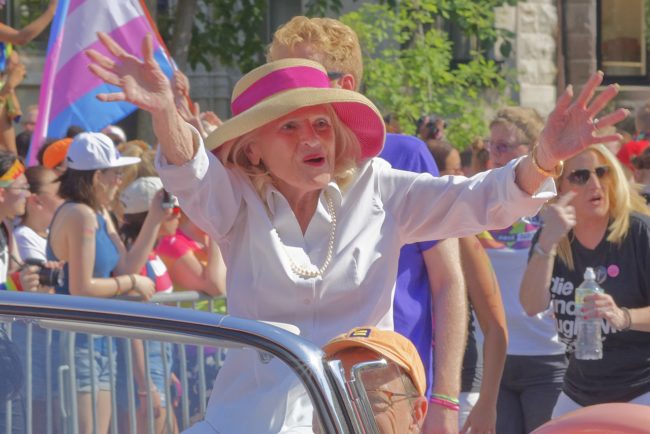
(Creative Commons)
New Yorker Edie Windsor spent more than 40 years with her partner Thea Spyer, waiting most of their lives for legal recognition.
In 2007, after Ms Spyer was diagnosed with a terminal illness, the pair travelled to Canada to marry.
However, even after Thea’s tragic death, the US government refused to recognise that their marriage even existed.
After being handed a massive tax bill for her wife’s estate – which a straight widower would be exempt from – the grieving Windsor filed a lawsuit challenging the Defence of Marriage Act, which banned federal recognition of same-sex unions.
The case rumbled through the courts, and in 2013 made it before the Supreme Court of the United States.
With the support of the Obama administration the court struck down DOMA, setting precedent which would lead it to bring marriage equality to all 50 states just two years later.
Windsor died aged 88 in September 2017. Former President Barack Obama paid tribute to her incredible work.
He said: “America’s long journey towards equality has been guided by countless small acts of persistence, and fuelled by the stubborn willingness of quiet heroes to speak out for what’s right.
“Few were as small in stature as Edie Windsor — and few made as big a difference to America.”

